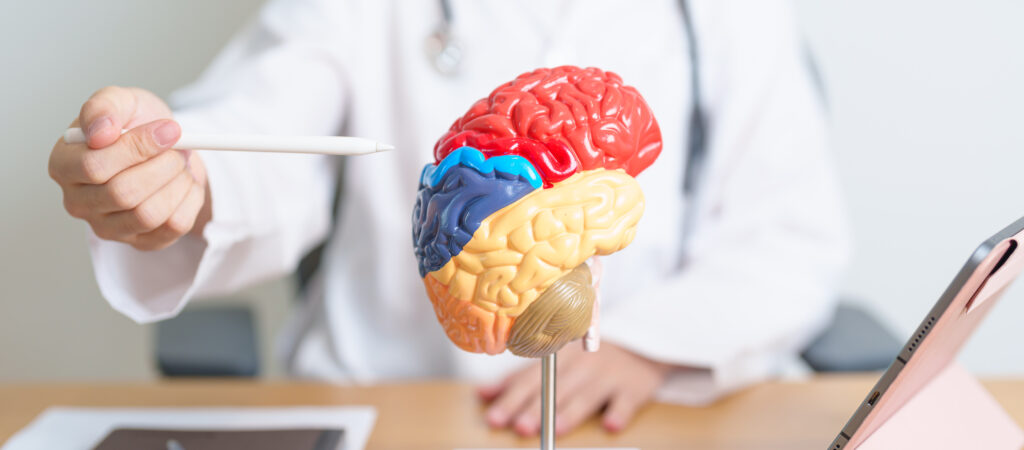
In Canada, June is designated as ALS Awareness Month, bringing much-needed attention to the approximately 3,000 Canadians affected by the disease each year. Fundraising activities will be taking place through the ALS Society of Canada to continue funding research and treatment. The Minster of Health has issued a statement, providing Canadians with the newest information available about the ongoing efforts to help those with the disease.

What is ALS?
A type of Motor Neuron Disease, Amyotrophic Lateral Sclerosis (ALS) is a degenerative disease affecting motor neurons, which are responsible for sending messages from the brain to the muscles. As the neurons die off, they can no longer send messages to the muscles, leading to muscle weakening (atrophy), twitching (fasciculations), and eventually the inability to walk, breathe, swallow, or speak independently.
What Causes ALS?
Approximately 10% of those who develop ALS have a family history of the disease. This subset of the disease, Familial Amyotrophic Lateral Sclerosis (FALS), is caused by a genetic mutation that has a 50% chance of passing to the next generation. In these families, it is typical to find someone in each generation who has ALS and/or dementia.
For the remaining 90% of individuals with ALS, the disease is sporadic, rather than inherited. Sporadic ALS typically affects those over the age of 40 with an average age of diagnosis being 55. On the other hand, those with FALS tend to exhibit symptoms earlier. The cause of Sporadic ALS is currently unknown.

What Are the Symptoms of ALS?
ALS affects each person differently and progression varies between individuals. However, there are common signs and symptoms:
- Limb Onset ALS
The most common onset of ALS will begin with muscle weakness in the arms and/or legs. This can cause tripping, falling, and/or trouble with tasks such as buttoning a shirt. - Bulbar Onset ALS
For 25-30% of people with ALS, the first symptoms will begin with difficulty chewing, swallowing, and speaking. The voice may become hoarse and speech slurred. - Fasciculations (Twitching)
The disruption of signals from the brain to muscles frequently causes involuntary twitching. These spasms are not generally painful, but can interfere with sleep. - Behavioural Changes
Some people will exhibit inappropriate laughing or crying, changes in thinking, or mood swings. This is often referred to as Frontotemporal Dementia.
How is ALS Diagnosed?
The early stages of ALS can be difficult to diagnose since the symptoms are similar to many other diseases. There is no specific test that can be used to diagnose Amyotrophic Lateral Sclerosis, so the first step is to eliminate the possibility of other causes for an individual’s symptoms.
Tests may include:
- Electromyogram (EMG), where a needle is inserted into various muscles, recording the electrical activity.
- Nerve Conduction Study, which measures the strength of electrical activity in a nerve, determining if it has been damaged. EMG and NCS are almost always done in conjunction with each other.
- Magnetic Resonance Imaging (MRI) to produce detailed images of the brain and spinal cord.
- Blood and Urine Tests, which can help eliminate other conditions and may indicate high Serum neurofilament light levels, a biomarker for ALS.
- Spinal Tap (also called Lumbar Puncture) to test spinal fluid, which may help uncover other causes of symptoms.
- Muscle Biopsy or Nerve Biopsy, removing a small amount of muscle or nerve tissue while under anesthesia.
How is ALS Treated?
There is no cure for ALS. Progression of the disease varies from person to person and treatment is based on managing symptoms and maintaining quality of life. There are currently three drugs approved in Canada and the US for treatment of ALS.
Stem Cell Therapy is a relatively new treatment for ALS and is showing promise in slowing the degeneration of motor neurons. While there are currently no government-approved stem cell therapies, clinical trials are ongoing.
Other treatment for ALS is based on helping the individual live comfortably, managing pain, and coping with symptoms. Prescription medication is just one facet of managing the disease. Doctors frequently recommend complementary therapies that include non-medical interventions, such as acupuncture, massage, and meditation.
How Can Home Care Help People With ALS?
Through the stages of ALS, an individual’s needs change and having in-home support helps families manage both the physical and emotional challenges they may face. Having a team of professionally-trained caregivers who are familiar with the disease will ensure an individual receives care that focuses on managing current symptoms as well as future challenges. Services such as meal preparation will ensure healthy habits, while personal care assists with activities of daily living when a person can no longer manage them alone.
At Just Like Family Home Care, a custom care plan is designed for every individual. A local Community Health Manager (CHM) will meet with the client and family to discuss how we can best meet their needs and address current challenges. As ALS progresses, we will work with families to continually provide the best quality care, adapting to the changing needs of the individual.
Our CHMs and caregivers are supported by ongoing training and education, ensuring their knowledge is up to date on the current management practices for those in our care. We work closely with families to ensure the individual receives consistent care, regular communication, and above all, compassion.
If you or a loved one have been diagnosed with ALS, we encourage you to reach out to the ALS Society of Canada as well as your local Just Like Family Home Care office.